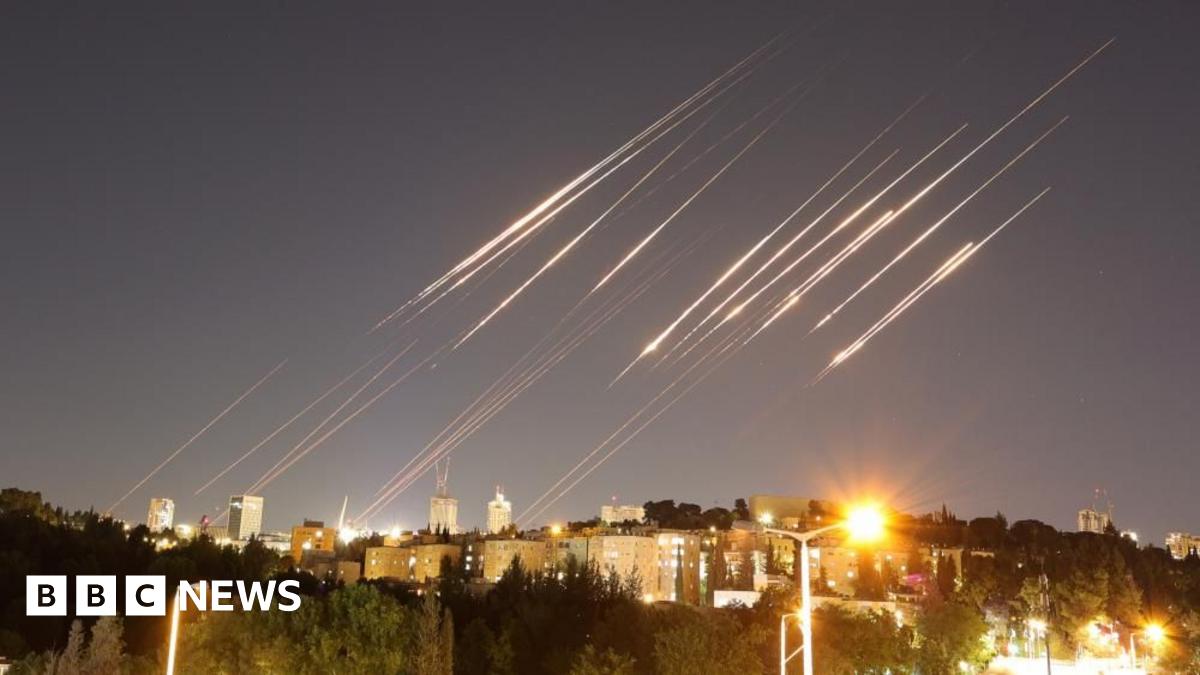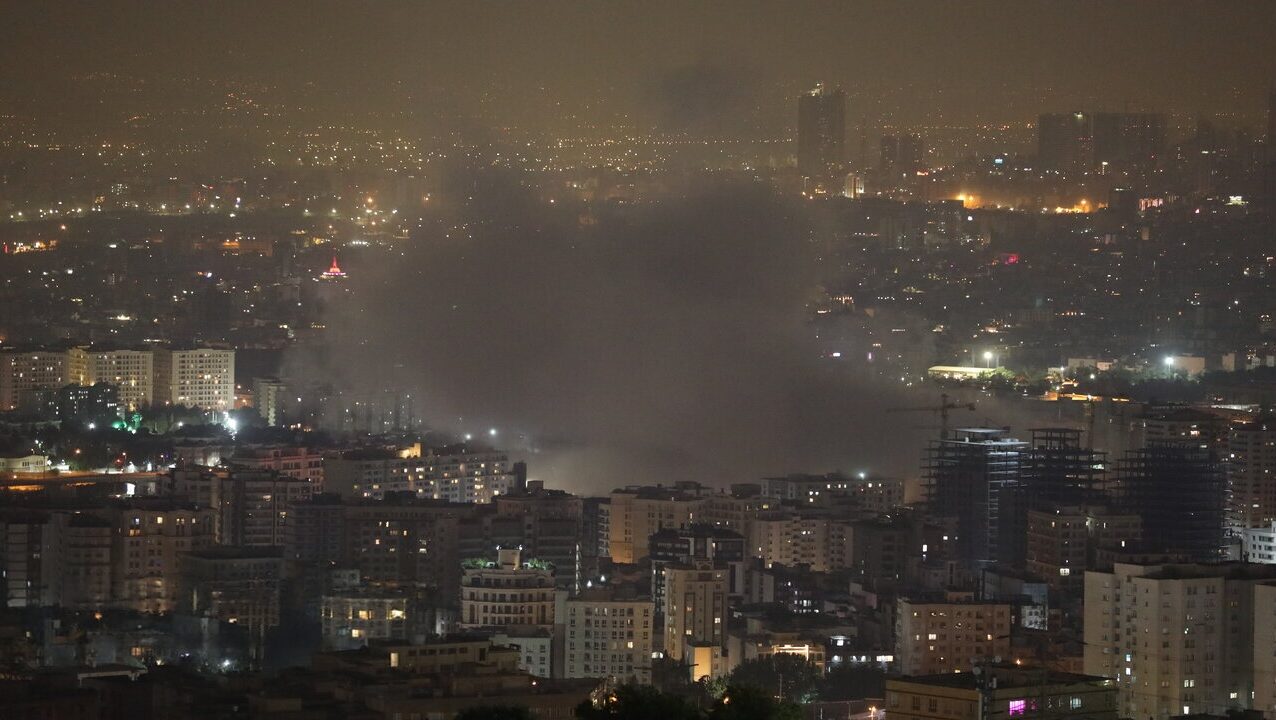NoHolyCows
Senior Member
- Joined
- Mar 16, 2025
- Messages
- 616
- Gender
- Male
- Basic Beliefs
- Skeptic
The problem is that you are fixating on a local maximum. It's a big problem in optimization when the global maximum is unknown. Consider several years ago, standing on top of an 11 outside town. A guy comes up, happy to have made it to the highest point around. Nope, if you kept looking for the path heading up you would have ended up on that 11. But if you had turned right at the junction (left clearly climbs, right follows the ridgeline and is pretty much flat for quite a ways) you would have ended up on that peak over there, nearly a thousand feet taller.When Hamas uses Palestinian civilians as human shields, your response isn't to do whatever it takes to remove Hamas from power. Instead your response is to encourage Hamas' tactic by playing into their hands. Well done. So much for your moral position. That's neither in the Palestinian civilians best interest... nor Israels. You are the enemy of both sides. Well done.
I'm for any side that can offer long term peace. It's not Hamas right now. Nor any other Palestinian alternative. The only hope for peace and stability in the region is Israel. We can debate all day why Palestinians in Gaza suck at valuing peaceful coexistence with Israel. But they just don't. For whatever reason. As long as that's the situation we need to find another solution. The best, (and only workable option) available is to let Israel rule it.
Politics is the art of the possible.
We're just different you and me. I think it's important to stand up for what's right and if any player is imcompatible to peace, we all get together and remove the problem. We did it in World War 2. We did it in the Iraq war... twice. I think we should do it this time again. Allowing Hamas to stay in power... I don't think it's a viable option. Not for any side. Certainly not the Palestine people. You clearly do. I don't know how anyone could be so cold hearted. But here we are.
If standing up for civilian life makes me “the enemy of both sides,” then so be it—because I’ll take that over being the apologist for mass death in the name of “removing the problem.”
Look at the real world. Violence doesn't come from repression, it comes from someone funding it.You say I’m playing into Hamas’ hands because I refuse to endorse war crimes. But that’s exactly the trap: the idea that condemning collective punishment somehow aids terrorism. No—it’s the opposite. The more civilians are bombed, starved, and humiliated, the more power you hand to extremists. You don’t defeat Hamas by validating its narrative. You feed it.
And you never present alternatives, you simply assert they must have been wrong.
You talk about some sort of magical peace that will happen if you just ignore it.You talk about peace, yet endorse a plan that guarantees perpetual war: indefinite occupation by a foreign military force over a stateless population that already resents it. That’s not a path to peace. That’s a pressure cooker. The idea that “Israel should just rule Gaza” ignores decades of history, resistance, and the plain truth that domination is not stability.
This hasn't ended, why should there be reconstruction?And no, politics is not just “the art of the possible.” It’s the art of what we choose to make possible. You invoke World War II and Iraq as if they’re models of success. But WWII ended in reconstruction, not vengeance. And Iraq? It was a disaster of false premises, shattered governance, and endless insurgency—ironically, much like what you now advocate for Gaza. We did remove the “bad guys”—and unleashed chaos that birthed even worse ones. You want to run that playbook again?
And you fail to recognize that your position requires handing power to whoever is the most evil.What’s cold-hearted is pretending that this only becomes a moral issue after the war is over—after the dead are buried, after the homes are gone, after the children are maimed. You talk about standing for what’s right. Then start by recognizing that killing thousands of civilians is not a side effect—it’s a failure. A disgrace. A policy choice. One you’re defending.
You want magical answers.And finally, you say you’re for “any side that can offer peace.” Then why not call for elections? For a UN administration? For regional diplomacy backed by ceasefire guarantees and reconstruction incentives? Why is your only “solution” a permanent military boot on the neck of a population that’s already endured decades of siege?
You don’t have to excuse Hamas. I don’t. But if your answer to terrorism is to flatten neighborhoods and declare that any alternative is naïve, then your real goal isn’t peace. It’s dominance.
And no, we’re not just “different.” You’ve chosen to normalize civilian suffering as a price worth paying. I haven’t.
That’s the difference.
NHC
Why call for elections?
We see what UN "peacekeeping" is like in Lebanon. Major willful blindness. Doing their job would get them attacked by Hezbollah, they choose the path that results in shots not being fired. And blame Israel when their forces are used as human shields.
Regional diplomacy? Iran hasn't shown up at the table once. They haven't given any indication of any desire to show up at the table. What good is talking to an empty chair?
Ceasefire guarantees? What in the world do you actually mean?
It all sounds good but has no connection to reality.
Lauren, the irony in your response is almost impressive. You accuse me of proposing “magical answers,” then turn around and suggest that indefinite military rule, mass civilian casualties, and open-ended occupation somehow lead to peace. That’s not realism. That’s delusion weaponized.
You invoke a metaphor about hiking ridgelines, but we’re not navigating terrain—we’re navigating war. And what you’re defending is a strategy that leads straight off a cliff: flattening neighborhoods, starving populations, and calling it “the global maximum.” It’s not strategic wisdom. It’s moral blindness wrapped in technocratic language.
You say violence doesn’t come from repression but from funding? Tell that to the history of every occupied people who resisted with stones long before they had backers. Extremism thrives where hope dies—and when you bomb shelters, close borders, and turn humanitarian aid into a bargaining chip, you’re not defeating terrorists. You’re manufacturing them.
You claim that calling for elections or ceasefires is naïve. But what’s your alternative? A permanent boot on the neck of a stateless population? That’s not stability. That’s a recipe for perpetual resistance. You point to UN failures in Lebanon, as if every flaw justifies total abandonment of diplomacy, law, and international coordination. That’s not analysis. That’s surrender dressed as strategy.
And when I ask why not support elections, reconstruction, or regional diplomacy, your answer is that Iran won’t show up—so the entire concept is void? That’s not a plan. That’s an excuse. Iran isn’t the only actor in the region, and pretending their absence justifies total war is like saying if one party walks out of negotiations, you burn down the whole conference hall.
You accuse me of handing power to “the most evil.” But here’s what you miss: when you level cities and justify every civilian death as unfortunate but acceptable, you become indistinguishable from the very evil you claim to fight. There is no moral high ground when you bury it under rubble.
You insist this hasn’t “ended yet,” so reconstruction isn’t relevant. But that’s the problem. You don’t want it to end. You’ve embraced a worldview where every alternative is dismissed as impossible, every diplomatic option laughed off, and every legal standard discarded—because you’ve decided that only dominance counts as peace. That’s not hard-nosed realism. That’s ideological rot.
And finally, the most chilling part of your argument is how easily you normalize mass civilian death. As if it’s just the cost of doing business. As if there’s no difference between neutralizing a combatant and incinerating a child in a “known shelter zone.” You talk about moral clarity—then excuse policies that erase the distinction between terrorist and toddler.
So no, Lauren, I don’t believe in magic. I believe in law, restraint, and the idea that not every atrocity needs to be met with a bigger one. You’ve chosen a future where the only answer is escalation. I haven’t. That’s the difference.
NHC


